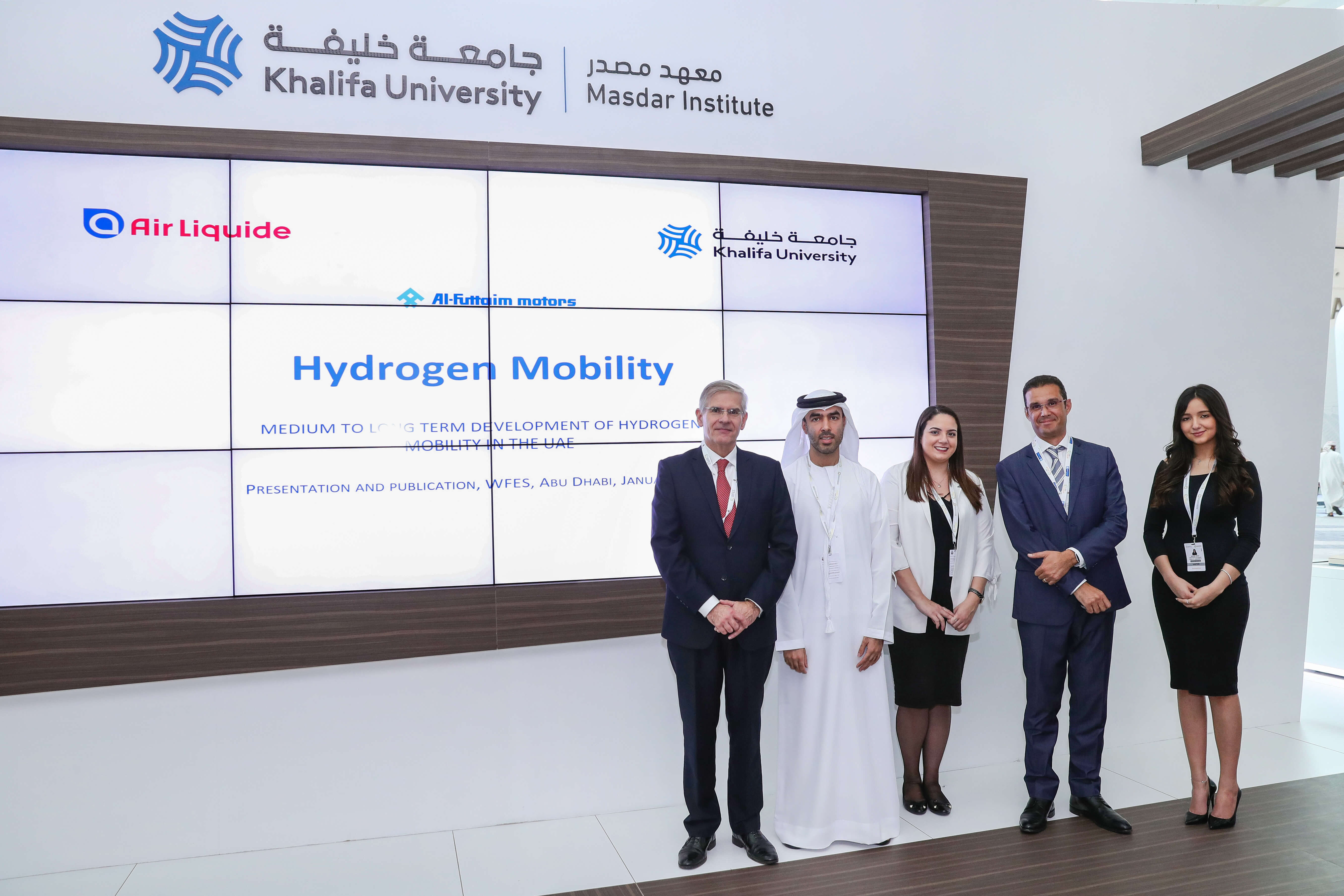
Study Outlines Favorable Prospects for Hydrogen Mobility in UAE
Air Liquide, Khalifa University of Science and Technology and Al-Futtaim Motors released a joint study during Abu Dhabi Sustainability Week 2019, on the ‘Medium to Long Term development of Hydrogen Mobility in the UAE’. This collaborative study outlines the contribution of hydrogen to the energy transition and demonstrates the favorable prospects for hydrogen mobility in the UAE.
The study demonstrates that hydrogen mobility in the UAE has a substantial potential to develop into a major economy for the country, and can contribute to the achievement of its clean energy goals, in line with the UAE’s Vision 2021. The study was conducted by Maram Awad, a Khalifa University graduate student during her summer internship with Air Liquid. Awad was guided by Olivier Boucat of Air Liquide, and Dr Ahmed Al Hajaj, Assistant Professor, Chemical and Environmental Engineering, Khalifa University.
The study reiterates the UAE’s commitment to diversifying the energy sources, and calls for the pivotal collaboration of the various public and private players for a successful deployment of hydrogen mobility. It also demonstrates the requirement for an initial focus on fleet vehicles, such as buses, trucks and taxis, which would generate enough hydrogen need for an optimized production scale. The use of local sources of hydrogen in addition to excess hydrogen produced in various industries, such as refining, can also contribute to very competitive costs of hydrogen for commercialization.
Air Liquide is leading the hydrogen supply for the Hydrogen Mobility market in the UAE, with ongoing projects to develop the hydrogen infrastructure, connecting hydrogen production sources and utilization routes.
Hydrogen is an alternative to fossil fuels in addressing the clean transportation challenge while improving air quality. Used within a fuel cell, hydrogen combines with oxygen from the air, to produce electricity, with water as the only byproduct. The fuel cell is used to convert hydrogen into energy to run an electric motor in vehicles known as Fuel Cell Electric Vehicles (FCEV). FCEVs are considered complementary to Battery Electric Vehicles (BEV), especially in large fleets of vehicles, in heavy duty vehicles and in providing greater autonomy in extreme climates, where BEVs are less efficient. A FCEV can be refuelled as quickly as an internal gas or diesel combustion engine vehicle, hence allowing for optimum flexibility of use.
Hydrogen as a transportation fuel has gained momentum globally for its emission-free property and its ease of use. The deployment of hydrogen powered vehicles is already in progress and expanding in the United States, Europe, Japan and Korea, and is now being introduced in the UAE.
As a leading research-based institution in the region focused on providing cutting edge technologies in clean energy and sustainability, Khalifa University, through Masdar Institute, remains committed to obtaining solutions for carbon mitigation and climate change especially through innovations in CO2 capture, biofuel, waste-to-energy, energy storage, desalination and solar power.
Air Liquide and Al-Futtaim Motors inaugurated the Middle East’s first hydrogen station in Dubai, in October 2017, to support the deployment of the FCEVs in the UAE. Once deployed on a larger scale, the Fuel Cell Electric technology has the potential to significantly reduce the UAE’s dependence on oil and lower car-generated pollution levels.
Abu Dhabi
15 January 2019